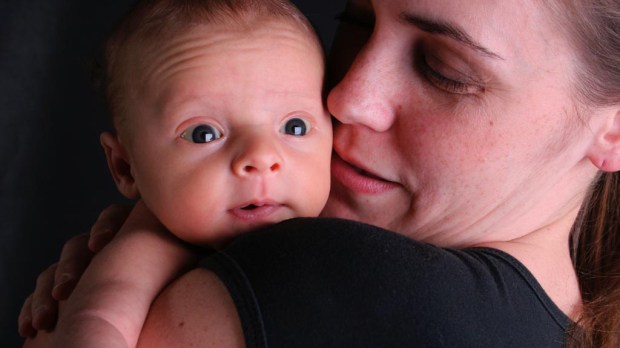In setting out to confront a problem, it’s necessary to understand its causes in order to apply realistic solutions. Child poverty in America provides a painful illustration of what comes of ignoring that truism.
Since the mid-1960s, the government has spent more than $22 trillion fighting poverty. In that time the rate of child poverty has dropped a measly 1.5% — from 20.7% in 1965 to 19.2% in 2015, according to U.S. Census Bureau figures.
A drop of 1.5% is better than no drop. But not a lot.
What accounts for these disappointing results? The explanation, says Patrick Fagan, is that the War on Poverty largely ignored “the role of marriage in reducing poverty.”
“Poverty is most prevalent in non-intact families [and] single-parent families are significantly more likely to fall into poverty than are married-couple families,” he writes.
Is the way we fight poverty making things worse?
Fagan, a social scientist specializing in marriage and family, offers this analysis on his Marripedia website. If he’s correct—and the numbers bear him out—the central problem underlying the problem of child poverty is family breakdown.
But the problem underlying family breakdown is essentially cultural. Or, if an old-fashioned word can be pardoned: moral. What we’re witnessing here is in large measure a product of a collapse of marriage-related values.
Critics dismiss this line of reasoning as moralistic, but it’s not. There is nothing invidiously judgmental about tracing a glaring social problem to its roots in destructive human behavior. In fact, if there is any moralism at work here, it’s the moralism of critics who are committed to defending moral libertarianism.
The good news is that the two-parent family remains the most common form for children. Last year, the Census Bureau tells us, 69% of the 73.7 million American kids under age 18 lived in such families. That was down from 88% in 1960 but still encouragingly high. Meanwhile, though, the percentage living with single mothers rose from 8% in 1960 to 23% in 2016 (those living with single fathers went from 1% to 4%).
Now take a look at child poverty. The link to single-parenting is clear. Over 2 million American children live in single-parent families, more often than not headed by never- married single mothers. And in 2015 nearly half of all the kids living with never-married mothers were in poverty.
Patrick Fagan writes: “While many single mothers work wonders and raise their children well despite the obstacles they encounter, for many others the challenge is too great and their children suffer the consequences. Children raised in a single-parent family tend to complete fewer years of schooling, exhibit behavior problems, commit acts of delinquency, and participate in increased sexual activity.”
But don’t place all the burden of responsibility on single-parenting. Kids living with cohabiting couples aren’t doing much better than those raised by single parents. In each case, nearly half the children live in poverty.
For the most part, politicians seem unable or unwilling to come to grips with these facts. Instead, family and child problems are routinely analyzed reductively—reduced to dollars and cents—with things like job creation and raising the minimum wage presented as solutions.
Economic factors are indeed important. I am not making an argument for spending less on poverty. Indeed, we should probably spend more, precisely to encourage marriage among low-income sectors of the population.
But taking only economic factors into account shortchanges children and shortcircuits solutions. A society that allows family structure to collapse in order to facilitate moral libertarianism is buying long-range trouble and hurting kids.
[In subsequent correspondence Shaw adds, “I am enough of a New Deal/Great Society product that I assume instinctively that government has a not unimportant role to play–I just want it to play the right role. But I am also enough of a product of old-fashioned morality, with a dash of subsidiarity thrown in, to wonder if the Churches mustn’t be necessary components of change.” Expect to read more on this subject in the near future – Ed.]

